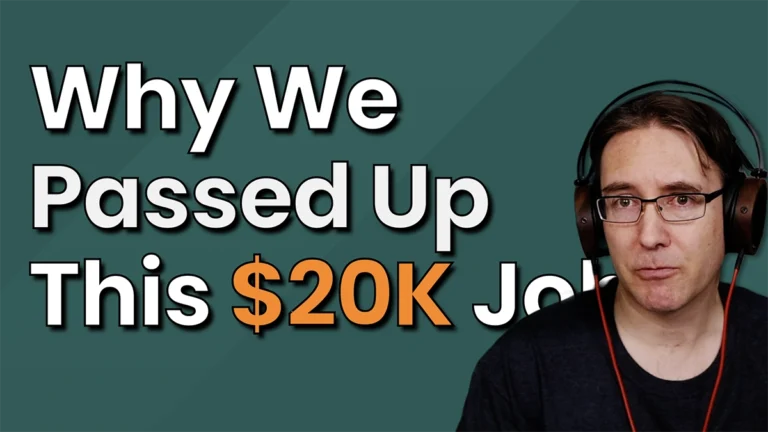
As a podcast editor or manager, it can be easy to get caught up in the day-to-day tasks of editing audio, managing show notes, and scheduling interviews. However, it’s important to set aside time each week to work “on” the business rather than just “in” the business. In this article, I’ll explore why it’s important for podcast editors and managers to work “on” the business and how to do it effectively.
Attract New Clients
Working “on” the business allows podcast editors and managers to focus on business development activities that can help attract new clients. This can include networking with other podcasting professionals, creating marketing materials like a website or social media profiles, and reaching out to potential clients directly. By dedicating time each week to business development, podcast editors and managers can grow their client base and increase their revenue.
Improve Existing Services
Working “on” the business also allows podcast editors and managers to take a step back and assess their existing services. By analyzing client feedback, tracking metrics like download numbers and engagement rates, and researching industry trends, podcast editors and managers can identify areas where they can improve their services. This can lead to better client satisfaction, more referrals, and increased revenue.
Develop New Services
In addition to improving existing services, working “on” the business can allow podcast service providers to develop new services. By researching industry trends, identifying emerging technologies, and surveying existing clients, editors can develop new services that meet the needs of their ideal clients. This can lead to increased revenue and a competitive advantage in the industry.
Streamline Business Operations
Working “on” the business can also help podcast editors and managers streamline their business operations. Podcast editors and managers can save time and reduce costs by identifying inefficiencies, implementing new tools and software, and automating repetitive tasks. This can lead to a more profitable business and a better work-life balance.
Achieve Long-Term Success
Finally, working “on” the business can help podcast editors and managers achieve long-term success. By focusing on business development, improving existing services, developing new services, and streamlining operations, podcast editors and managers can build a sustainable business that can weather changes in the industry. This can lead to a fulfilling career that provides financial stability and personal satisfaction.
How to Work “On” the Business
Now that we’ve explored why it’s important to work “on” the business let’s look at how to do it effectively. Here are some tips for podcast editors and managers to work “on” the business:
Schedule Time Each Week
The first step to working “on” the business is to schedule time each week for business development activities. Ideally, this would be 10-20% of work time but can be as little as one hour per week. Marketing and lead generation take time in terms of execution and to see results. It’s important to be consistent and prioritize this time.
Identify Business Development Activities
Next, identify business development activities that align with your goals and target audience. This can include networking, creating marketing materials, reaching out to potential clients, analyzing client feedback, researching industry trends, and developing new services.
Set SMART Goals
Set SMART (Specific, Measurable, Attainable, Relevant, and Time-bound) goals for your business development activities. This will help you stay focused and track your progress over time.
Track Your Results
Finally, track your results and adjust your strategy as needed. Use metrics like client acquisition rate, revenue growth, and client satisfaction to evaluate the effectiveness of your business development activities.
In conclusion, working “on” the business is an essential component of success for podcast editors and managers. By setting aside time each week to focus on business development activities, improving existing services, developing new services, streamlining operations, and achieving long-term success, podcast editors and managers can build a sustainable business that provides financial stability and personal fulfillment. Remember to prioritize this time, identify SMART goals, track your results, and adjust your strategy as needed. By doing so, you’ll be on your way to building a thriving podcasting business that stands the test of time.






